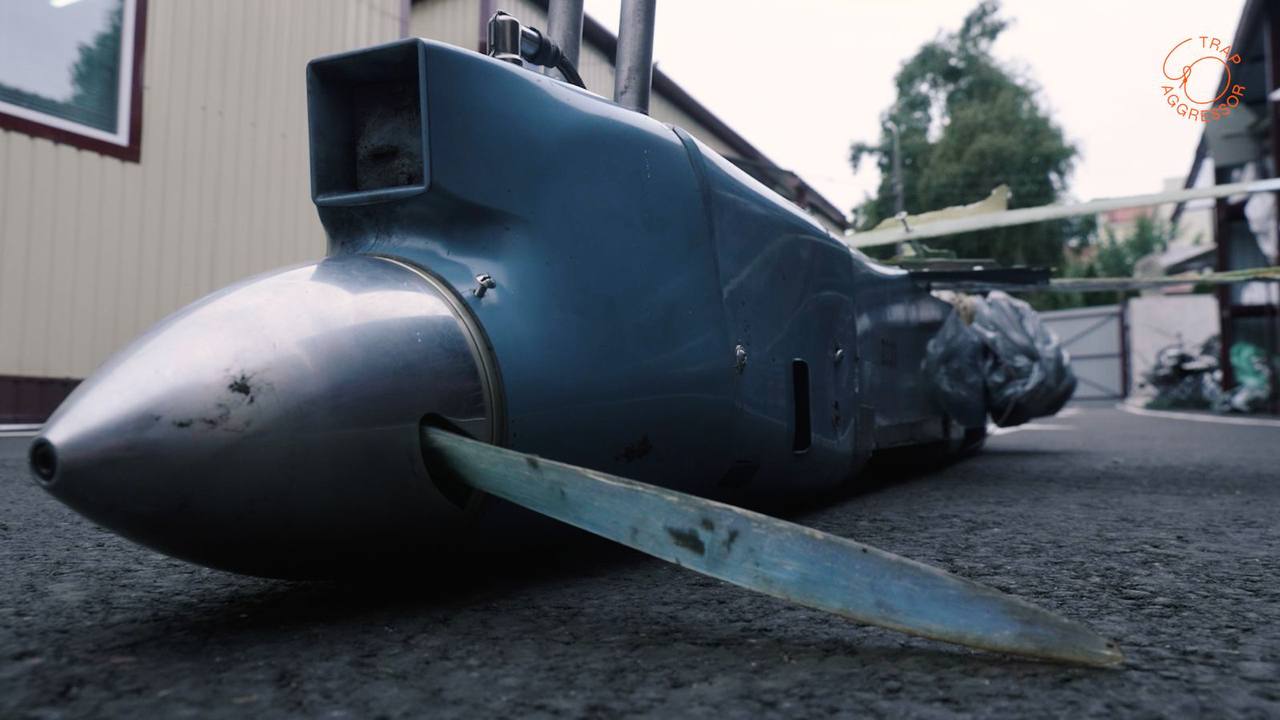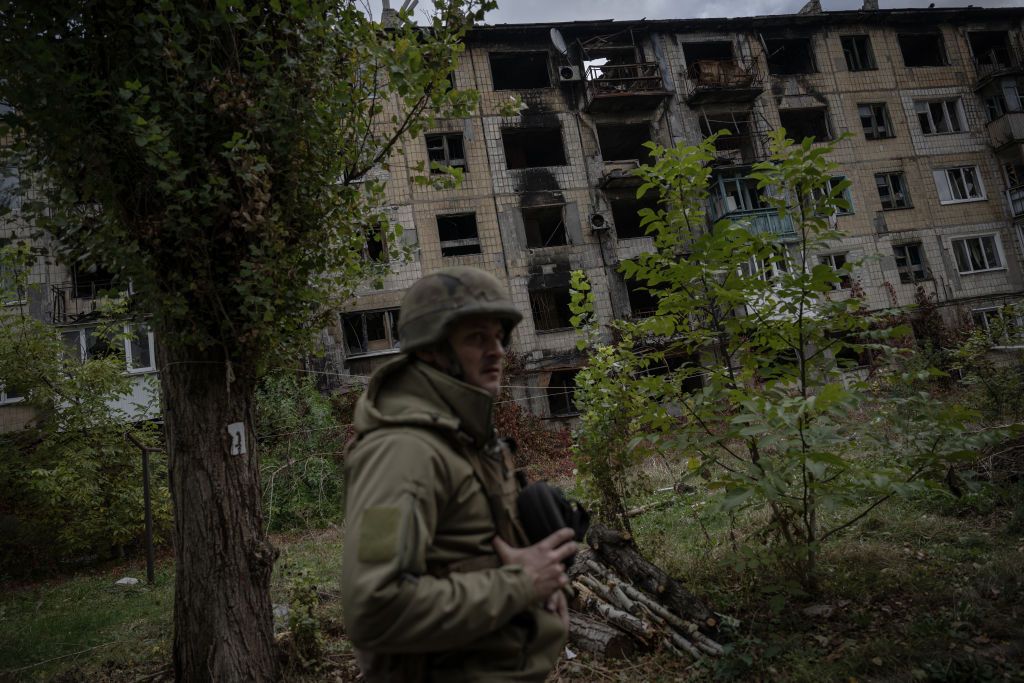Ukraine war latest: Russian drone strike likely targeted Khmelnytskyi Nuclear Power Plant, Zelensky says

Key developments on Oct. 25:
- Russia strikes Khmelnytskyi Oblast overnight, damages buildings near local nuclear power plant, injures 20
- Zelensky says Ukraine will respond to Russia's terrorist attacks
- Shmyhal meets with Steinmeier in Berlin, discusses aid and air defense for Ukraine
- Germany pledges over $200 million for Ukraine's energy industry
- Russian Kinzhal manufacturer imports components from EU, the Insider reports.
Russian troops targeted Khmelnytskyi Oblast in western Ukraine overnight on Oct. 25 for the fourth day in a row this week.
Even though the Ukrainian air defenses shot down the incoming Shahed drones, the falling debris damaged buildings in the city of Slavuta and injured 20 people, according to President Volodymyr Zelensky.
Zelensky said Russian troops likely aimed at hitting the Khmelnytskyi Nuclear Power Plant, also reporting that some of the windows at the plant's premises were shattered due to the blast wave.
Earlier in the day, the Energy Ministry reported that the explosions damaged the windows of an administrative building and a laboratory near the plant. According to the Khmelnytskyi Oblast Military Administration, residential buildings and some vehicles also suffered damage.
According to Ukraine's Air Force, 11 Shahed-type drones were shot down in Ukraine overnight, including over Khmelnytskyi Oblast.
Energy Ministry said the attack also damaged a power line, leaving 1,860 households in Khmelnytskyi Oblast without power.
"This strike in the direction of the NPP (nuclear power plant) is another reminder to all our partners of how important it is to strengthen Ukrainian air defense and how dangerous it is when Russia can bypass world sanctions," Zelensky said during his evening address.
"Many components in the attack drones used by Russian terrorists and in the missiles originate from other countries, from various companies, including Western companies," he added.
"The effectiveness of sanctions against Russia is literally protection against terrorism."
Zelensky's address comes as Russian independent investigative news outlet The Insider reported that Russian factories that produce Kh-47M2 Kinzhal missiles are using components imported from multiple European Union countries.
Kinzhals — allegedly Russia's most advanced air-launched ballistic missiles — and other weapons like Iskander missiles, are produced by the Mechanical Engineering Design Bureau (KBM), part of a holding of Rostec, the state-owned defense conglomerate.
According to the media, company records show equipment is still being imported via intermediaries in Poland, Germany, Lithuania, Latvia, and the U.K.
Replacement tools, for example, were supplied in January 2023 from a Berlin-based logistics company. The tools are manufactured by the Swedish multinational machinery producer Sandvik.
A single Kinzhal costs the Russian state $10 million, "approximately 50,000 average Russian pensions," The Insider wrote.
Zelensky says Ukraine will respond to Russia's terrorist attacks
On Oct. 25, Zelensky said that this year, Ukraine will "not only defend" itself but also "respond" to Russia's "terrorist attacks" on critical infrastructure.
"The enemy knows this very well," he said. "First, they removed the fleet from Crimea, and now they are also moving their aviation further from our borders."
Zelensky's comments came in anticipation of the likely renewed Russian attacks against Ukraine's critical infrastructure this upcoming winter.
Russian forces started targeting Ukraine's energy infrastructure last fall, plunging the country into widespread blackouts over the winter, causing millions of dollars in damage, and killing civilians.
Earlier on Oct. 6, Zelesnky once again warned that Russia will attempt to demolish Ukraine's energy infrastructure with more attacks this winter.
"They cannot understand that Ukraine will not be conquered anyway. But (Russian forces) will try to launch more attacks and have more attempts to bypass our defenses," Zelensky said.
"We realize the threat completely," he added.

Air Force spokesperson Yurii Ihnat said on Sept. 3 that Ukraine was strengthening its air defense to prepare for Russia's potential mass attacks on critical infrastructure facilities this season.
"A year ago, we had no Western (air defense) systems of medium range at all. We received the first NASAMS and IRIS only last fall. Today, we have such a variety of air defense equipment, which might not be found in any other country," Ihnat said.
Shmyhal meets with Steinmeier in Berlin; Germany pledges over $200 million for Ukraine's energy industry
Prime Minister Denys Shmyhal met with German President Frank-Walter Steinmeier on Oct. 25, amid his official visit to Berlin for the sixth German-Ukrainian business forum.
On Facebook, Shmyhal wrote that he and Steinmeier discussed strengthening Ukraine's air defense and the implementation of President Volodymyr Zelensky's peace formula — a 10-point peace plan to end Russia's war in Ukraine that he announced at the G20 meeting in November 2022.
They also discussed the joint development of their country's defense industries, referring to the news that German arms manufacturer Rheinmetall will cooperate with Ukraine's state-owned defense company Ukroboronprom to repair and maintain Western-produced military vehicles.
Shmyhal said he thanked Steinmeier for the fact that "Germany is among the leaders in Europe in terms of support for Ukraine."
On the same day, the German Development Ministry announced that the country had pledged 195 million euros ($206 million) to Ukraine in energy supplies and in support of Ukrainian energy companies in preparation for the upcoming winter.
Germany's Development Minister Svenja Schulze and Ukraine's Infrastructure Minister Oleksandr Kubrakov agreed upon the aid package during their meeting in Berlin on Oct. 25.
Half of the funds are to be allocated for protecting, restoring, and strengthening Ukraine's energy infrastructure, which sustained significant damage during mass Russian strikes in the previous fall and winter.
"Heat and electricity are central to the resilience of the people in Ukraine, especially with a view to the upcoming winter," Schulze said.
"That's why we're increasing our support for Ukraine's critical energy infrastructure. The Ukrainian government has committed to a reconstruction that will make the country more sustainable and bring it closer to the European Union."















